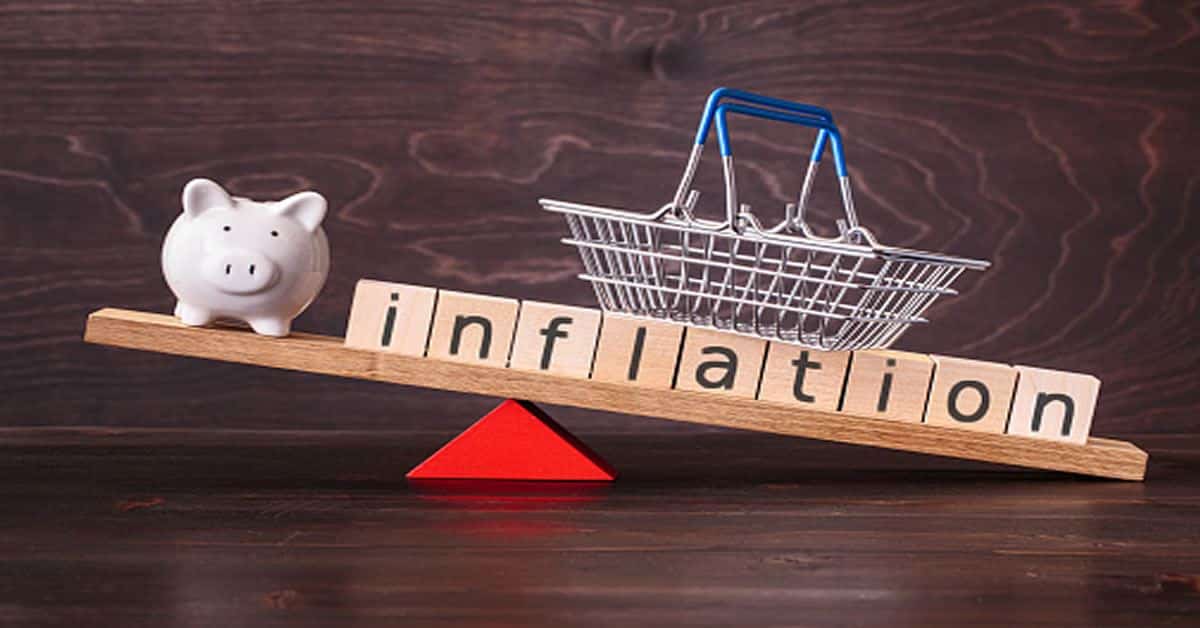The Inflation Imperative: How Inflation Affects Savings and Investments

As the global economy continues to navigate uncharted waters, one crucial factor remains a universal concern: inflation. The rapid rise in prices and the devaluation of money have left many wondering how they can protect their savings and investments from the erosion of purchasing power. In this article, we’ll delve into the world of inflation and its effects on savings and investments, providing you with the knowledge and insights you need to make informed decisions.
What is Inflation?
Before we dive into the impact of inflation on savings and investments, let’s start with the basics. Inflation is defined as a sustained increase in the general price level of goods and services in an economy over time. It’s a natural phenomenon that occurs when there’s an increase in the money supply, often as a result of economic growth or monetary policy. In simple terms, inflation means that as the money in your pocket loses value, the prices of everyday essentials like food, housing, and transportation rise.
How Inflation Affects Savings
When it comes to savings, inflation is a silent thief that can quietly drain the value of your hard-earned cash. Here are a few ways inflation can impact your savings:
- Eroding purchasing power: As prices rise, the buying power of your savings is reduced. For example, if you saved $1,000 last year, it may only be able to buy 80% of what it could buy the year before.
- Lower returns: In a low-interest-rate environment, the returns on your savings account may not keep pace with inflation, leaving you with a real-terms loss.
- Uncertainty: Inflation can create uncertainty, making it difficult to plan for the future or make long-term financial decisions.
To combat the effects of inflation on savings, consider the following strategies:
- High-yield savings accounts: Invest in high-yield savings accounts that offer higher interest rates to keep pace with inflation.
- Certificates of Deposit (CDs): CDs provide a fixed interest rate for a set period, which can help you earn a higher return than a traditional savings account.
- Treasuries: Government bonds, such as T-bills or Treasury notes, offer a relatively stable return and are less affected by inflation.
How Inflation Affects Investments
Inflation also has a significant impact on investments, particularly those tied to the performance of individual stocks or bonds. Here are a few ways inflation can affect your investments:
- Stock market volatility: Inflation can lead to increased uncertainty, causing stock prices to fluctuate more wildly, which can be challenging for investors.
- Bond market risks: Inflation can reduce the value of bonds, as their fixed returns become less attractive in a higher-inflation environment.
- Commodity prices: Inflation can drive up the prices of raw materials, which can impact the performance of companies that rely on these commodities.

To mitigate the effects of inflation on investments, consider the following strategies:
- Diversification: Spread your investments across different asset classes, sectors, and geographic regions to reduce exposure to any one particular market or sector.
- Inflation-indexed investments: Consider investing in assets that are indexed to inflation, such as Treasury Inflation-Protected Securities (TIPS) or inflation-indexed savings accounts.
- Real assets: Invest in real assets, such as gold, real estate, or infrastructure, which can perform well in an inflationary environment.
Actionable Steps
Now that you understand the impact of inflation on savings and investments, it’s time to take actionable steps to protect your financial future. Here are a few tips to get you started:
- Review your savings and investment portfolios: Assess your current situation and make adjustments to ensure you’re prepared for inflation.
- Diversify your investments: Spread your investments across different asset classes and sectors to reduce risk.
- Consider inflation-indexed investments: Invest in assets that are indexed to inflation to protect your purchasing power.
- Stay informed and flexible: Stay up-to-date with market developments and be prepared to make adjustments to your strategy as inflationary pressures evolve.
Conclusion
Inflation is a fundamental force that can have a significant impact on savings and investments. By understanding how inflation affects these critical financial aspects and taking actionable steps to protect your financial future, you can ensure that you’re prepared for whatever the economy may bring. Remember, it’s essential to stay informed, diversify your investments, and consider inflation-indexed assets to safeguard your hard-earned savings.
Share This Article
Don’t let inflation catch you off guard! Share this article with friends, family, and colleagues to spread the word about the importance of protecting your savings and investments from inflation. Your fellow readers will appreciate the knowledge and insights you’ll be sharing.

